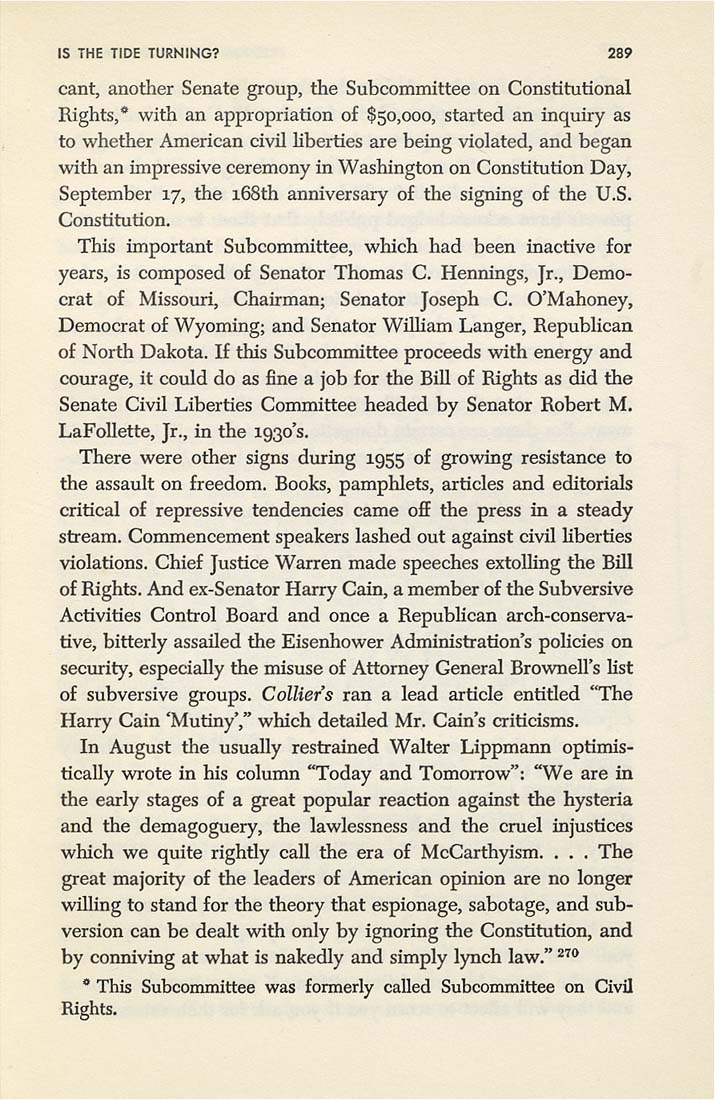IS THE TIDE TURNING? 289
cant, another Senate group, the Subcommittee on Constitutional
Rights,* with an appropriation of $50,000, started an inquiry as
to whether American civfl Hberties are being violated, and began
with an impressive ceremony in Washington on Constitution Day,
September 17, the 168th anniversary of the signing of the U.S.
Constitution.
This important Subcommittee, which had been inactive for
years, is composed of Senator Thomas C. Hennings, Jr., Demo¬
crat of Missoini, Chairman; Senator Joseph C, O'Mahoney,
Democrat of Wyoming; and Senator Wflham Langer, Republican
of North Dakota, If this Subcommittee proceeds with energy and
cotirage, it could do as fine a job for the Bill of Rights as did the
Senate Civil Liberties Committee headed by Senator Robert M.
LaFollette, Jr., in the 1930's.
There were other signs during 1955 of grovraag resistance to
the assault on freedom. Books, pamphlets, articles and editorials
critical of repressive tendencies came off the press in a steady
stteam. Commencement speakers lashed out against civil hberties
violations. Chief Justice Warren made speeches extolling the Bfll
of Rights. And ex-Senator Harry Cain, a member of the Subversive
Activities Contiol Board and once a Republican arch-conserva¬
tive, bitterly assafled the Eisenhower Admirustiation's policies on
security, especially the misuse of Attorney General Brovraell's Hst
of subversive groups. Collier's ran a lead article entitled "The
Harry Cain 'Mutiny'," which detailed Mr. Cain's criticisms.
In August the usually restiained Walter Lippmaim optimis¬
tically wrote in his column "Today and Tomorrow": "We are in
the early stages of a great popular reaction against the hysteria
and the demagoguery, the lawlessness and the cruel injustices
which we quite rightly call the era of McCarthyism. . . . The
great majority of the leaders of American opinion are no longer
willing to stand for the theory that espionage, sabotage, and sub¬
version can be dealt with only by ignoring the Constitution, and
by conniving at what is nakedly and simply lynch law." ^'"*
" This Subcommittee was formerly called Subcommittee on Civfl
Rights.
|








